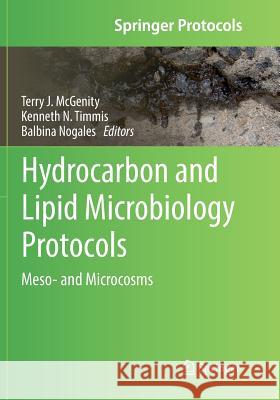Hydrocarbon and Lipid Microbiology Protocols: Meso- And Microcosms » książka
topmenu
Hydrocarbon and Lipid Microbiology Protocols: Meso- And Microcosms
ISBN-13: 9783662571125 / Angielski / Miękka / 2018 / 173 str.
Kategorie:
Kategorie BISAC:
Wydawca:
Springer
Seria wydawnicza:
Język:
Angielski
ISBN-13:
9783662571125
Rok wydania:
2018
Wydanie:
Softcover Repri
Ilość stron:
173
Waga:
0.33 kg
Wymiary:
25.4 x 17.78 x 0.99
Oprawa:
Miękka
Wolumenów:
01
Dodatkowe informacje:
Wydanie ilustrowane











